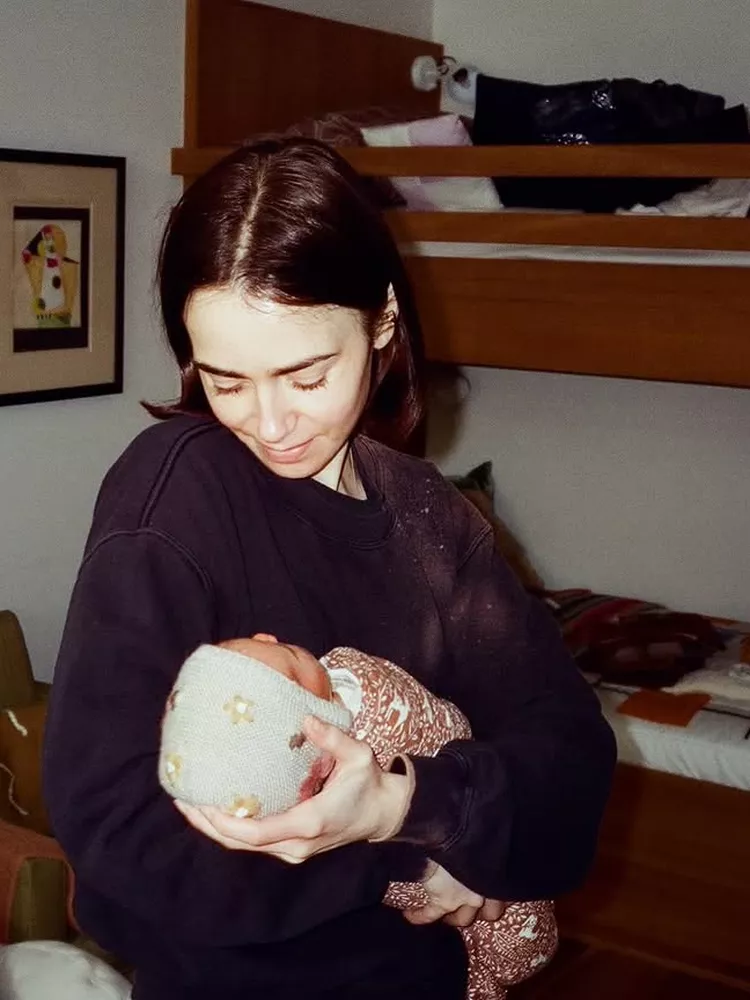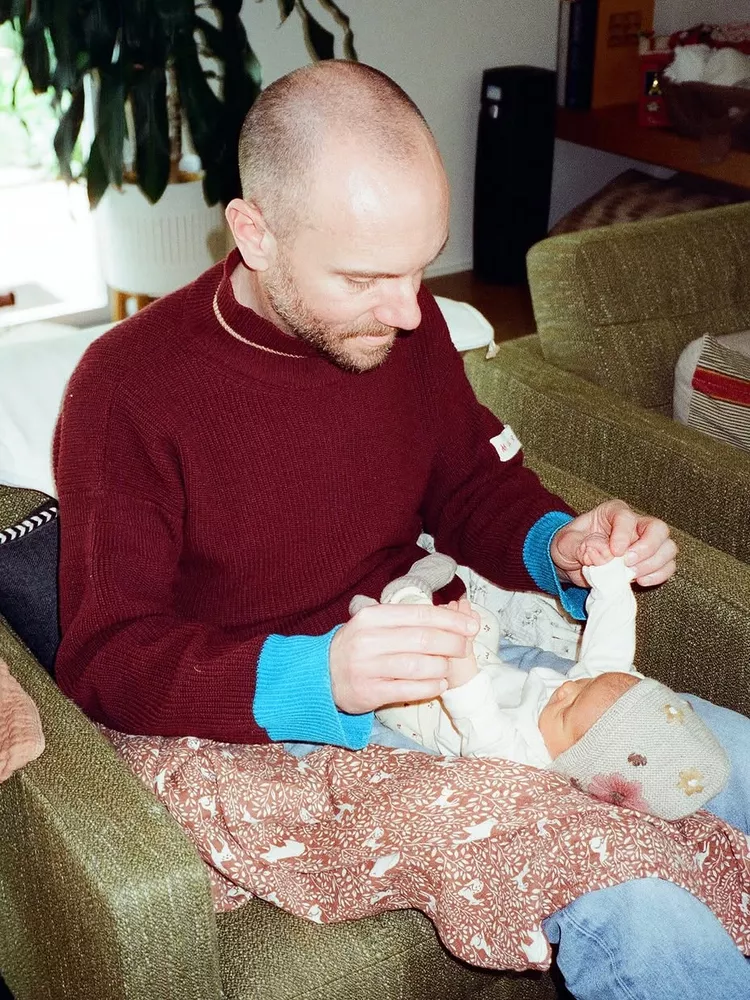As McDowell noted in his response: “It’s OK to not know why someone might need a surrogate to have a child. It’s OK to not know the motivations of a surrogate, regardless of what you assume”
The moment I saw Lily Collins cradling her newborn daughter on Instagram, I recognised it. She was, as she put it in the caption, in “mom mode.” Unbrushed hair and slightly grubby sweatshirt? Messy bedroom? The pallid skin of someone who’s just been handed a tiny baby and realized it’s all down to them? Three months into my own motherhood journey, I can safely say: tick, tick, and tick.
The difference is that the 35-year-old Emily in Paris actor and her husband, film director Charlie McDowell, used a surrogate in order to have their daughter, Tove.
Since the couple shared their happy news on Instagram, there’s been a wild amount of speculation about why they needed a surrogate in the first place. “Rich people using women as incubators” and “The Handmaid’s Tale: celebrity version” read two of the many comments underneath Collins’s post. Funny, I don’t remember seeing the new baby greetings cards for those sentiments.
As always when we don’t have all the information about a particular celebrity’s life choices, people rushed to fill the vacuum with their own assumptions. Collins must have used a surrogate because she’s too vain/lazy/rich to bother going through pregnancy herself, right? Far easier to outsource it. This sort of practice even has a name, “social surrogacy”, as if you’ve just popped down to the local dry cleaners and asked the woman behind the counter if she wouldn’t mind carrying your child, as well as laundering your party frock. Be along to pick it up later – don’t mind, do you?

Photo: @lilyjcollins

Photo: @charliemcdowell
We fall into this trap every time a woman in the public eye has a baby in this way (see also: Sarah Jessica Parker, Nicole Kidman and Kim Kardashian), a trap that sees us call them out in the name of feminism – so unsisterly to use another woman’s body to carry your baby – but hinges on the idea that her own appearance is all that matters. That’s ingrained misogyny at its finest and most hypocritical.
Could it perhaps be that Collins and her husband have other, deeply personal reasons – as so many couples do – for having their daughter in a “non-traditional” way? Reasons that are absolutely none of our business? In her 2017 memoir, the actor wrote that bulimia had led to her periods stopping and concerns that she might never carry children. That should be enough to encourage empathy and understanding, not nastiness and judgement. We don’t have a right to any further details.
Nor, while we’re about it, is it their duty to adopt, as many have suggested. It’s heartbreakingly awful that there are so many children who desperately need homes and families, but there are also so many people who could offer them, and that quite possibly includes you and me. It isn’t Collins’s responsibility, just as it isn’t down to any couple experiencing fertility issues. No one has an obligation to take that path.
Being famous might make parenthood easier in many ways – and it certainly makes surrogacy, which can cost up to £100,000 more of a viable option – but having money doesn’t make you immune to the emotional gut punches that can come with trying to start a family, however you end up doing it.
None of us needs to justify our choices on this most sensitive of subjects. That’s if it is a choice at all; why do we assume it is? We know nothing about the challenges Collins and her husband may have faced or the woman who helped them. I bet a lot of those people slinging mud would also defend a woman’s right to do what she wants with her body; that includes privacy about her struggles or, indeed, deciding to act as a surrogate for someone else.
As McDowell noted in his response: “It’s OK to not know why someone might need a surrogate to have a child. It’s OK to not know the motivations of a surrogate, regardless of what you assume.”
It’s OK not to agree with surrogacy, but not to attack or judge a new parent at an incredibly vulnerable time – and that’s whether you’re on social media, or just taking the bus.
